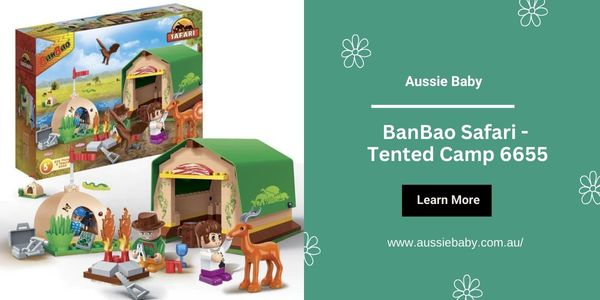Play is not just a simple pastime for children—it's a crucial part of their development. Among the various types of play, block play offers a unique opportunity for parents to engage with their children. In this blog, we delve into how block play can be used to foster parent-child bonding and encourage essential skills such as communication and cooperation.
Building Together: A Foundation for Communication
When parents and children sit down to play with blocks, they aren't just building structures; they're also building a foundation for effective communication. As you and your child decide what to build, you're initiating a dialogue that can enhance your child's vocabulary and their ability to express ideas and feelings.
Tips for Parents:
- Ask open-ended questions to encourage your child to think critically and express their thoughts.
- Narrate your actions and thought processes as you play to model communication.
- Celebrate your child's verbal contributions to reinforce their communication efforts.
Block Play: A Window into Your Child's World
Children often use play to reflect their understanding of the world. Block play, in particular, can be quite revealing. By observing and participating in your child's block play, you gain insight into their cognitive and emotional world.
Insights Gained Through Play:
- Children's block creations can reflect their interests, worries, and joys.
- The narratives they create during block play can give parents a glimpse into their child's inner thoughts.
- Joining in block play shows your child that their interests and ideas are valued.
The Role of Blocks in Teaching Cooperation and Sharing
Blocks are a fantastic tool for teaching the principles of sharing and cooperation. Working on a joint project, like a block tower or a block city, requires taking turns and collaborating on a shared vision.
How to Encourage Cooperation:
- Set rules for turn-taking and sharing before you begin playing.
- Work on a block project that requires teamwork, like a large structure that needs many hands.
- Praise cooperative behavior and explain why working together is beneficial.
Encouraging Creativity and Problem-Solving
Block play is inherently about creating and solving problems. Whether it's figuring out how to balance a tall tower or how to create a bridge, blocks challenge children (and parents) to use their imagination and critical thinking skills.
Fostering Creativity:
- Encourage your child to think outside the box by suggesting unconventional uses for blocks.
- Pose problems for them to solve with their blocks, like crossing a gap or supporting a heavy object.
- Build something without a clear plan to encourage improvisation and spontaneous problem-solving.
The Lasting Impact of Block Play on Parent-Child Relationships
The time spent playing with blocks is more than just fun; it's an investment in your relationship with your child. These moments of shared joy and frustration, success and failure, create a bond that can withstand the test of time.
Creating Lasting Bonds:
- Make block play a regular activity to ensure ongoing bonding opportunities.
- Reflect on your block play sessions with your child to solidify the memories and lessons learned.
- Use the skills practiced during block play in other aspects of your relationship to reinforce the bond.
In conclusion, block play is not only a versatile tool for developing young minds but also a bridge to stronger parent-child relationships. Through collaboration, communication, and shared creativity, blocks become more than toys—they become the building blocks of lifelong bonds. Next time you find yourself amidst a pile of blocks, remember that each one represents an opportunity to build a deeper connection with your child.
Read More
Thriving Together: 5 Positive Parenting Strategies for a Happy Family
Unlocking a World of Play: The Transformative Power of Toy Storage Racks
Mum and Kids Fun Holiday Activities: Creating Memories Together
The Joyful Splashes of Learning: How Bath Time Play Shapes Your Child
How Scootering Benefits Your Child's Physical and Mental Health
Building Foundations: How Blocks Support Early Math Skills














